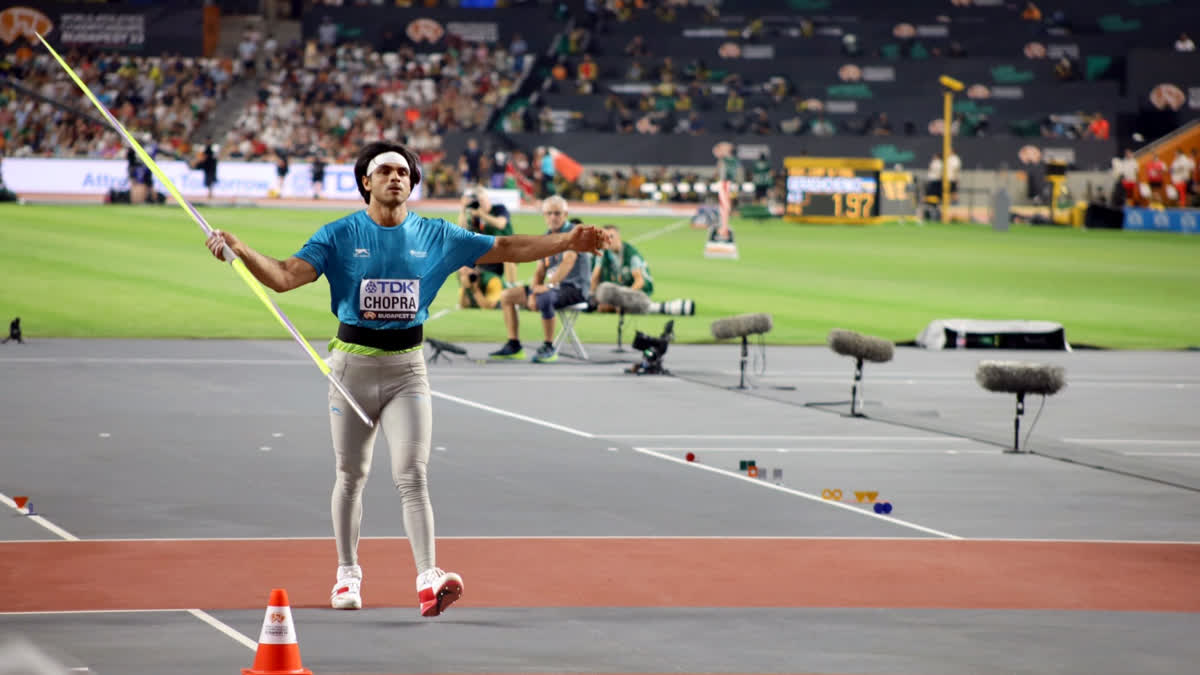Just six days are to go before the start of the Paris Olympics and there is a wave of excitement running among the sports fans as they will see the best in the business rubbing shoulders against each other across numerous disciplines. Just like the every edition, many eyes will be set on one of the most-watched sports in the Olympics - Athletics. The sport has a deep-rooted history and ahead of the Paris Games, we will take a look at the journey of the sport, some of the greats of the sport, Indian players participating in the sport and India’s track record
- History
Athletics has been played in every edition since the berth of the modern Olympics in 1896. The modern Olympic programme includes sprints, hurdles, relays, middle and long-distance runs, race walks, marathons, jumps, throws, and combined events. The events contested in the Athletics from 1900 to 1920 varied widely but there has been a constant roster in place since the 1952 edition after the addition of the short racewalk.
The roster hasn’t been changed since then except for the 1976 edition where the long racewalk was omitted.
The Women’s events commenced in the 1928 edition while the mixed events were added to the Olympic charter in 2020.
- Greats of the Game
Paavo Nurmi was just sensational when he participated in the Track and Field in the Olympics. The middle-distance runner bagged 12 medals in the history of the Olympics which includes nine gold medals. The athlete also known as ‘Flying Finn’ won three golds and a silver in Antwerp 1920 and then followed it with five gold medals four years later. Nurmi also won one gold and two silver medals in Amsterdam and inked a legacy in the Athletics.
Carl Lewis of the USA was another elite athlete in the history of the Olympics. The dominant sprinter and long jumper bagged a total of 10 medals in the Carnival of Games. Lewis won four gold medals in the 1984 Los Angeles and then followed it up with two golds and a silver four years later in Seoul. He won three more gold medals in the next couple of editions and the American player ended his Olympic career as one of the best athletes across the globe.
Allyson Felix of the USA is the sole female athlete to win Athletics medals in the double digits. Her dominance in the Olympics spanned from 2004 to 2020 as she amassed 11 medals including seven golds. Felix won a silver in the 2004 Athens and then went on to win one silver and one gold in the next edition. 2012 was her peak edition as she bagged three gold medals. Five more podium finishes in the next two editions made her name immortal in the history of the Olympics.
Usain Bolt is also a notable name to mention as the Jamaican dominated the sprints like no one else winning eight medals in the history of the Olympics and all of them were first-place finishes.
- Indian Contingent
A contingent of 29 members will represent the country in Paris in the Athletics and Neeraj Chopra is the brightest prospect for a medal. This year, Neeraj won gold in the Paavo Nurmi Games and secured a top-place finish in the Federation Cup. He also finished in second position in the Doha Diamond League and India will hope that he will continue his form in the Olympics as well and get a medal.
Except for Neeraj, no other member in the contingent seems to be the medal contender but an extraordinary performance at the biggest stage can ensure a podium finish for the athletes.
- India’s track record in Athletics
India sent a single member for the 1900 Olympics in the form of Norman Pritchard. He won two silver medals in the Men’s 200-meter and Men’s 200-meter hurdles. However, in 2005 World Athletics (WA) published historical data which indicated that Pritchard represented Great Britain. However, the International Olympic Committee (IOC) considered that he had represented India. Thus, a debate around the nationality of Pritchard still remains.
India sent its first Olympic contingent under the Indian Olympic Association (IOA) in the 1920 Antwerp Games. There were four players participating in the Athletics but none left any impact on their performance. In 1924, Dalip Singh made it to the semi-final in the Long Jump with a leap of 6.635 but wasn’t able to enter the final of the competition. 24 years later, Gurnam Sing scripted an impressive performance by making it to the final of the men’s high jump.
Then came the year 1960 and all the hopes of the Indian fans were lying on the shoulders of Milkha Singh as he was emerging through the ranks. But, the Indian athlete missed out on a bronze medal by a whisker. He clocked a timing of 45.600 while the bronze medalist had clocked a timing of 45.500.
Gurbachan Singh Randhawa was impressive in the men’s 110m hurdles in the next edition as he finished the final in the fifth position out of 10 athletes. The next solid performance in the Olympics came from Anju Bobby George finished the final of the women’s long jump with a leap of 6.83 at the fifth position in the Athens 2004 and also set a national record.
- Neeraj Chopra’s Gold
Neeraj’s monumental achievement of winning gold deserves a separate mention as he brought gold for a country where athletics lacks the viewership, funds and infrastructure required to become a sporting powerhouse. He managed to throw the javelin to a distance of 87.58 meters winning a gold and creating history. His achievement has inspired many to take up javelin throw as a profession and more and more athletes are coming through the grassroots to represent the country in the sport.



